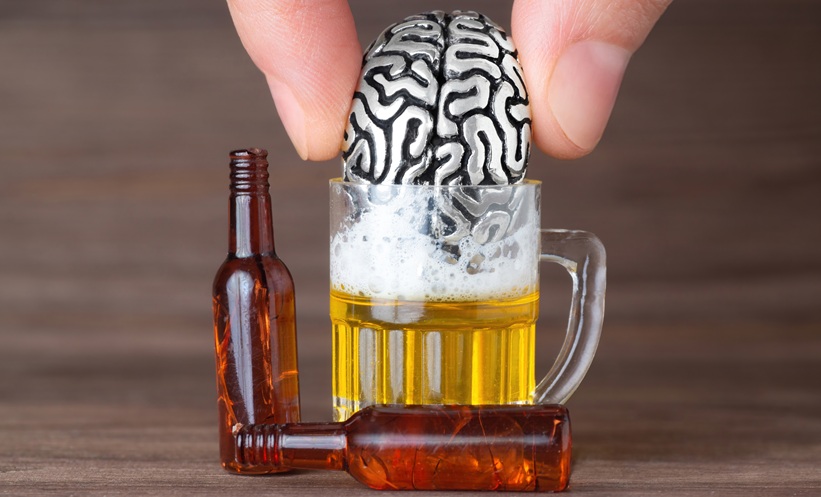NEW research combining observational and genetic analyses finds that alcohol consumption, including light drinking, is associated with an increased risk of dementia.
U-Shaped Observations Challenge Conventional Wisdom
Observational analyses in over 550,000 adults from the US Million Veteran Programme and the UK Biobank initially suggested a U-shaped relationship between alcohol and dementia risk. Non-drinkers and heavy drinkers (>40 drinks per week) had higher dementia risk compared with light drinkers, while participants with alcohol use disorder (AUD) showed the highest risk. These results seemed to reinforce prior studies proposing a protective effect of moderate alcohol consumption.
Genetic Evidence Strengthens Alcohol and Dementia Link
Mendelian randomisation analyses using summary statistics from GWAS data of 2.4 million participants challenged the apparent protective effects. Genetic proxies for alcohol intake indicated a monotonic increase in dementia risk: a 1 SD rise in drinks per week was associated with a 15% higher risk, and a twofold increase in AUD prevalence increased dementia risk by 16%. These findings suggest that observational correlations may be confounded by reverse causation, where early cognitive decline reduces alcohol consumption, falsely implying protective effects.
Public Health Implications of Alcohol and Dementia Research
The study highlights that all levels of alcohol consumption may contribute to dementia risk. Light drinking is unlikely to be protective, and strategies that reduce AUD prevalence could meaningfully lower dementia incidence. For clinicians and public health policymakers, these findings reinforce the importance of alcohol moderation and early intervention in at-risk populations.
Conclusion
Overall, this large-scale, multi-method study clarifies that alcohol use, including moderate drinking, is linked to increased dementia risk. Targeted public health strategies could reduce future dementia cases by addressing alcohol use disorder prevalence.
Reference
Topiwala A et al. Alcohol use and risk of dementia in diverse populations: evidence from cohort, case-control and Mendelian randomisation approaches. BMJ Evid Based Med. 2025; DOI: 10.1136/bmjebm-2025-113913.








